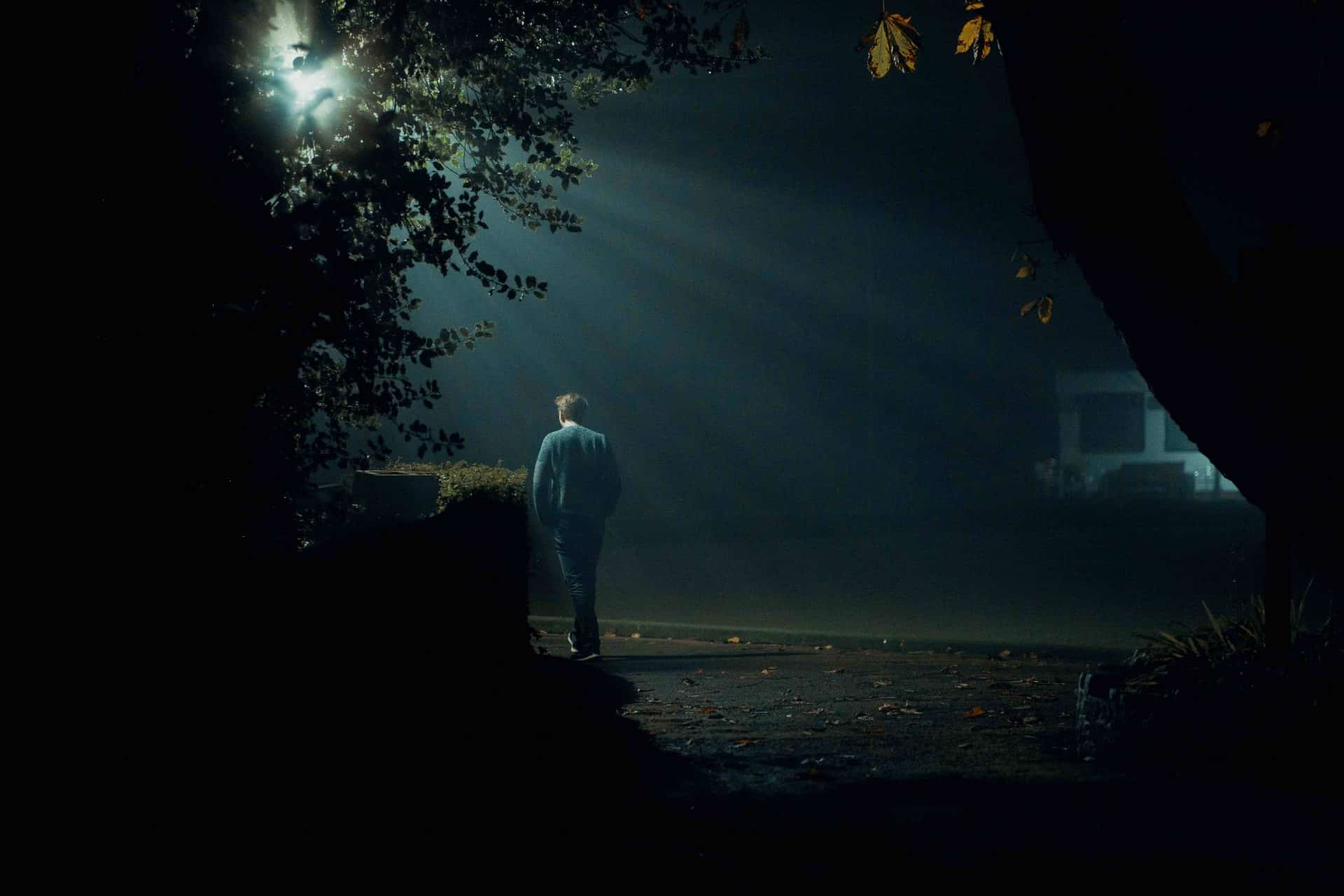The Battle Against Male Loneliness
Mental Health
Male loneliness is on the rise in an increasingly separated and individualistic world, and the consequences can be terrible. But there are people and organisations intent on bringing men together...
“I have this sense that I don’t fit into society.” Gary is 52, an army veteran who, after 22 years of service suffered from PTSD and found his marriage collapsed just prior to the pandemic. Tackling lockdown alone, he had a breakdown on the other side it. Although he sought counselling and medication, he is still struggling, and one of his major problems is an inability to make connections as he gets older. “It’s very isolating. It’s hard to break into new friendship groups. My social life was with my wife and since we separated it’s left a big hole. I’m on the outside a lot and there’s no easy way to go and meet people.”
The particulars of Gary’s story may not resonate, but if you are an older man some of the alienation and communication issues may sound familiar. Scratch that – any man of any age seems to find it harder than women to make friends, and in crisis situations we tend to withdraw rather than reach out. That’s not just accepted wisdom, it’s something that is borne out statistically and has some tragic results.
Simon Gunning is the CEO of the Campaign Against Living Miserably, a suicide prevention charity that has come to national prominence over recent years, dovetailing with the work of men like Freddie Flintoff, Prince William and Rio Ferdinand, to make men’s mental health become a genuine talking point for every generation. However, the hard truth about the figures, is that older men are most affected by the issue.
“For a lot of reasons, men who are 55+ have displayed stoicism throughout their lives,” Simon tells me, “They will help others when needed but won’t put up their own hands. The ability to integrate is harder for that group. It means the use of our helpline skews to that group. Suicide completion, as we call it, skews very heavily their way.”
Yet it is not simply remaining ‘stiff upper lip’ attitudes, it is about the specific circumstances of growing older too. “You have the expectation when you’re young that life is going to play out like a film,” says Simon. “There’s a narrative arc, and as you’re entering the third act, things should start getting resolved towards a satisfying end. That’s often not the case. Jobs aren’t there; if you’re over 65 and you want to work there’s not going to be much to fulfil your expectations. Getting into new friendship groups is highly challenging. Things for quite a lot of people haven’t worked out the way they hoped. That’s a hard thing to deal with.”
Then he quickly adds: “But it’s not all doom and gloom! There are things we can do…”
Well, indeed. For the purposes of a story such as this one, and something I have been working on in the last five years on The Book of Man, is to support men better – not demonising being a man but finding ways to work around some of the male behaviours that aren’t very good for us.
Simon says through the Campaign’s helpline, web chats and messaging, they focus on three things to prevent people slipping into dangerous mental health territory: “A sense of self-worth. A sense of belonging to something bigger than yourself. And avoiding a sense of entrapment.”
It is remarkable to see just how much support is out there to tackle these three things now – for men who take the brave step towards it, that is.
Struan, who is 64, joined a London walking group called the Proper Blokes Club last year, and is very glad he did. “I was heading into retirement, and I realised all my network was work-related. I needed a new network to socialise and meet people. I needed activities, something for my physical health and something for my mental health. The Proper Blokes Club ticked those boxes.”
Essentially, the Club is simply a walking and talking group where any man can turn up and take a stroll around the city for an hour and a bit, chatting as much as they like, and finding support if they need it. Struan was not having mental health difficulties at the time but he was felt having a group of men around him would be worthwhile, and so it proved: “Earlier this year I was diagnosed with prostrate cancer. It was caught early, I’ve had my treatment and everything is going well. But there were two other men in the Club who had had it, and one in particular was able to give me guidance that a consultant couldn’t, because he’d been through the experience. The encouragement was there. It’s been really important.”
Scott Johnson, who founded The Proper Blokes Club, puts it all simply: “Guys have always had problems, it’s just we’re talking about it now and not suffering in silence.”
He founded the Club during the pandemic as a way to get out of the house, and to relieve some of the stresses he had from a relationship ending. It started as a Facebook post on a community page where he put a call out to meet him at HMS Belfast – only one bloke turned up. Since then though, the group has grown hugely, and is running 12 walks a week across 9 boroughs for over 300 men: “It’s all different ages, and its mutually beneficial for the different generations. The older ones have the wisdom but the younger ones are changing the stiff upper lip approach.”
The key to it all, says Scott, is the walking as well as talking bit: “One of the biggest things is that men find it quite uncomfortable to sit in a group doing talking therapy, it’s intimidating. But just walking somewhere means you don’t have to look at each other. I don’t know why but it helps.”
This is an approach which has also powered the growth of the UK Men’s Sheds Association, another grass-roots organisation where people set up local sheds for men to visit to do practical work and basically hang out.
“Men’s conversations are somewhat different to women’s,” says Mike Magnay, an Ambassador for Men’s Sheds, “The watchword of the organisation is: men don’t talk face-to-face, they talk shoulder-to-shoulder. If they engage in a common task, they’ll open up. And what’s surprising is just how much they do open up.”
Curious men simply have to find a local shed on their website, then arrange a visit. Once there, you can work on your own projects or do group work; as for the talking, well that’s up to you.
“There’s really no pressure,” says Mike, “But lots of members have said it’s been a lifeline. Men are told to man up and not show their emotions, but because this is a work environment, it frees people up and they don’t feel embarrassed about sharing.”
He says for men in retirement, it can be crucial: “When you’re retired it’s easy to forget which day of the week it is. But this gives you an event to look forward to. Look, divorce in retirement is no longer uncommon, and not only do men lose a partner, they often lose the house, it can turn their world upside down. Having somewhere to go to for a bit of solidity and to get involved in something, and produce something… personal pride comes back.”
He says that their goal is to increase the number of sheds nationwide, and after hitting 500 sheds in 2019, they’ve just surpassed 1000. However he notes that while they have 8 sheds forming in Oxfordshire now, there’s already 120 Women’s Institute’s there. Which highlights the gap in gender support for older generations.
Nonetheless, things certainly are changing. Back at the Proper Blokes Club, I spoke to John, 52. He joined the Club after being encouraged to go by his wife, who had terminal cancer. “I was a bit nervous but I went for the first walk with Scott and enjoyed it. My wife said I should go again. And then the day after my second walk with them, she died.”
There followed a period of devastation, made all the harder because he was now the solo carer for his son, who has special educational needs. To his amazement though, the men he’d just met in the group, came to his aid. “One morning, I’d dropped my son at school and was crying my eyes out at home. Then one of the lads messaged me asking if I wanted a coffee. He lived nearby, and he brought round coffee and pastries. I have no family around me. This was a godsend.”
At a memorial to his wife on her birthday, 10 of the group showed up at the church, “and they’ve done that every year since. It’s like my wife knew I was going to need these guys and my God they have been there for me, truly.”
When I ask John what the core thing clubs like the Proper Blokes or the Men’s Sheds do for people, he puts it down to simple friendship: “Look when you’re a kid it’s easy to make friends. But when you get to my age, if you go up to a stranger in a pub and say, ‘Alright mate, do you want a drink?’ They’ll think, ‘Who’s this crazy dude?’ When you meet within the confines of the club, it can evolve to more than you ever expected.”
It’s comforting to know that there are now places out there for crazy dudes to help one another.
The Campaign Against Living Miserably have a helpline on 0800 585858 and a webchat service at thecalmzone.net, as well as further information and support around mental health.
To find a Men’s Shed in your area visit menssheds.org.uk
And for more information on The Proper Blokes Club visit theproperblokesclub.co.uk
A version of this article first appeared on Saga Exceptional.
Trending

Join The Book of Man
Sign up to our daily newsletters to join the frontline of the revolution in masculinity.

















